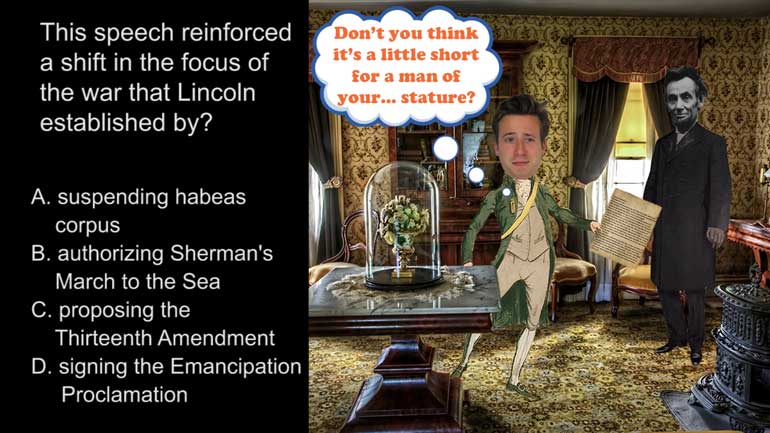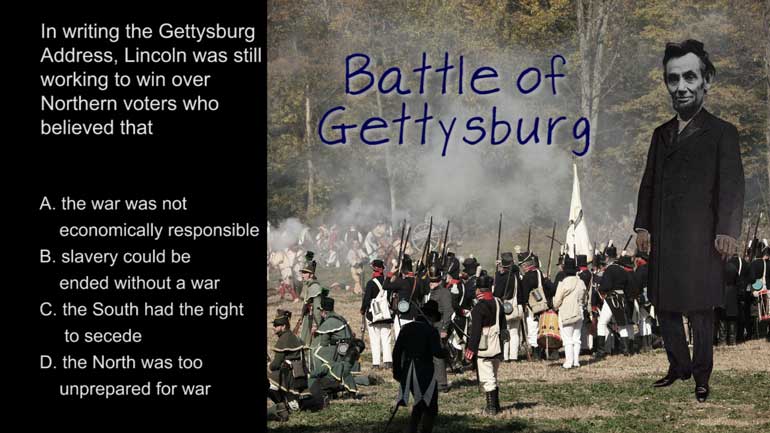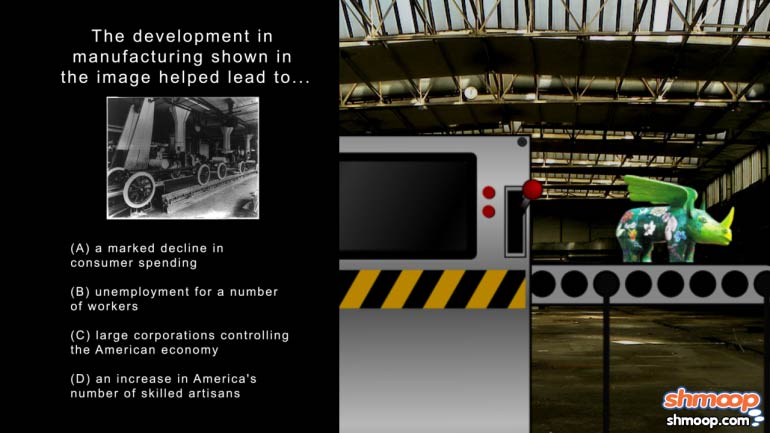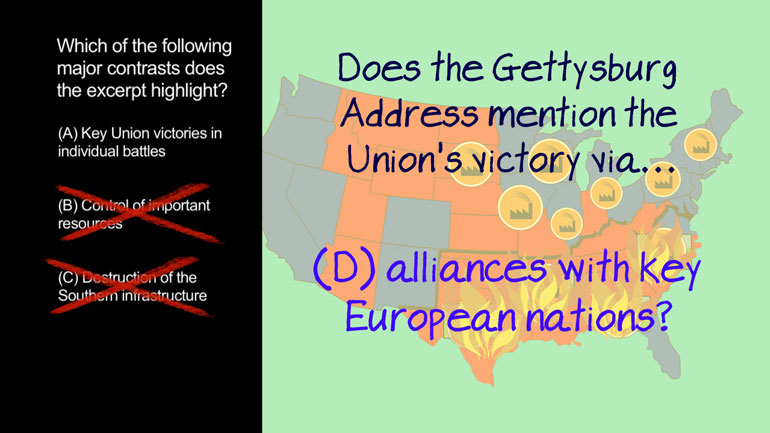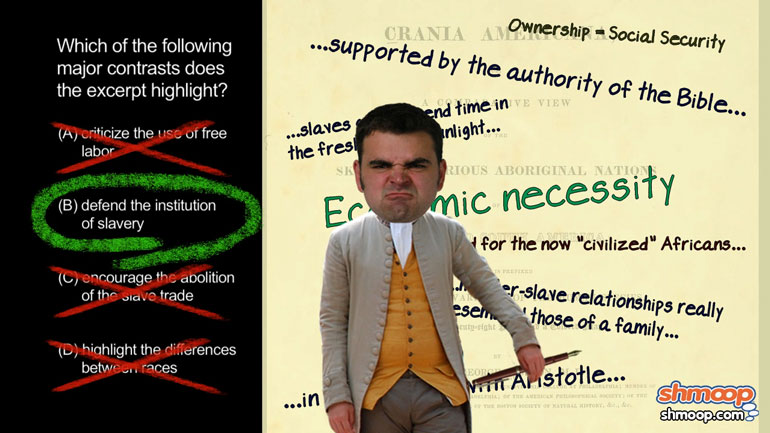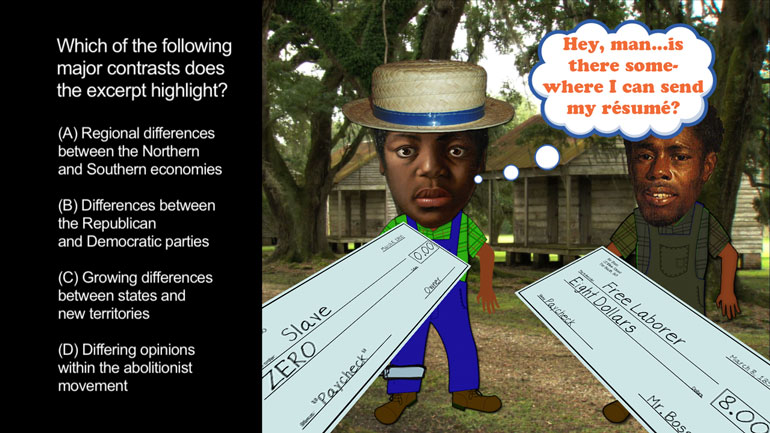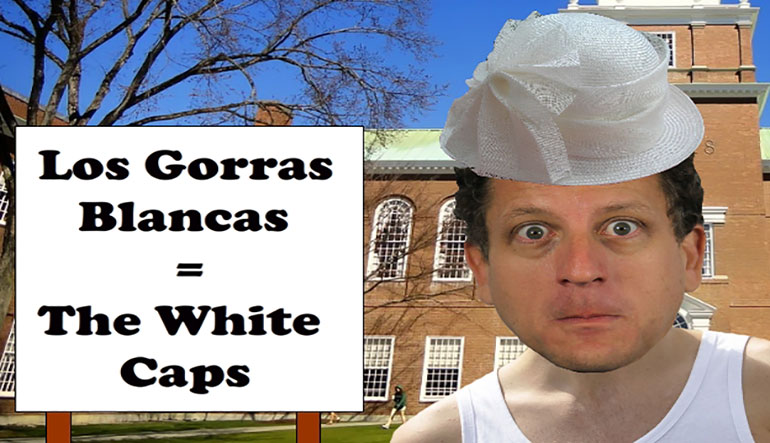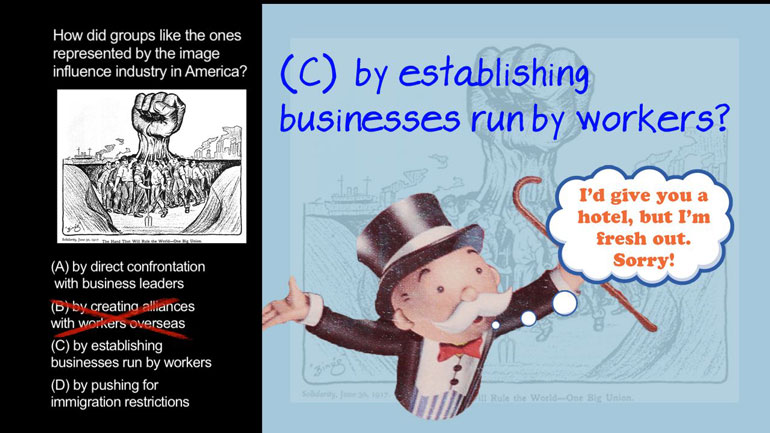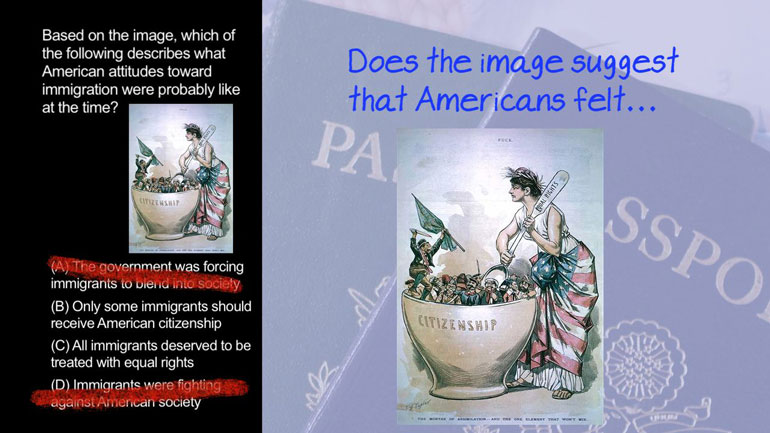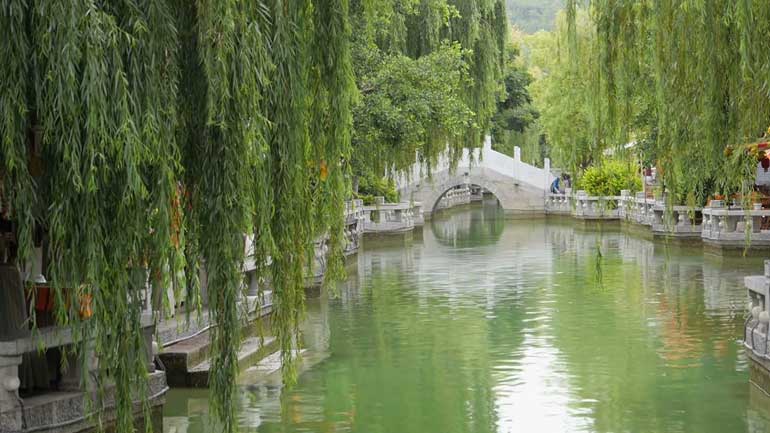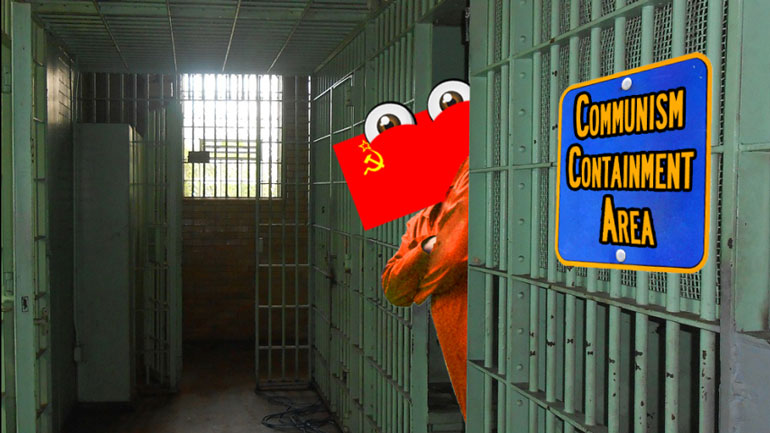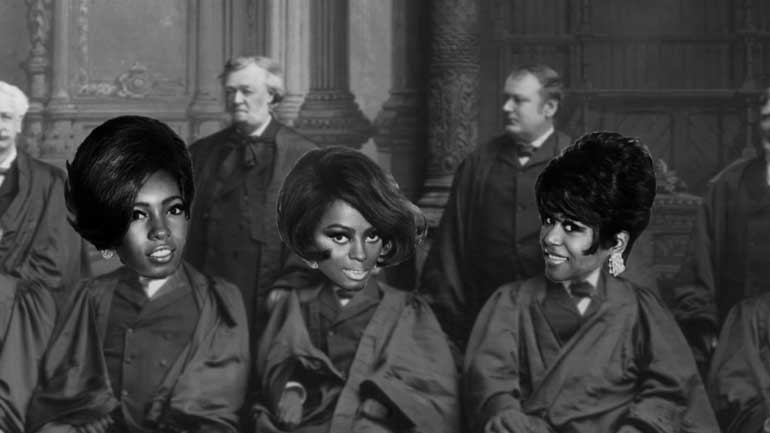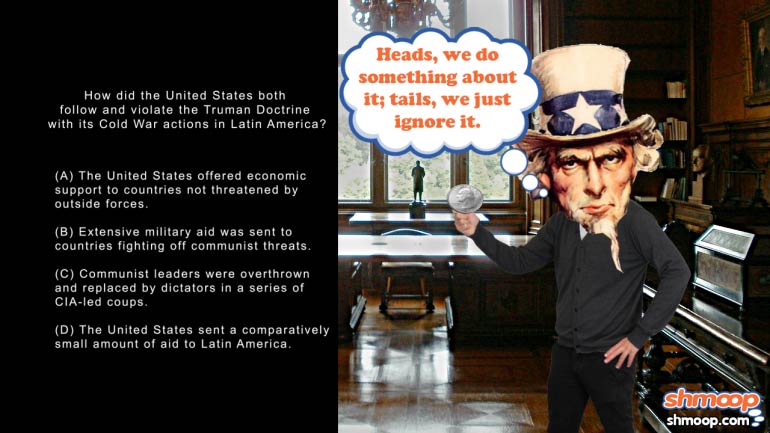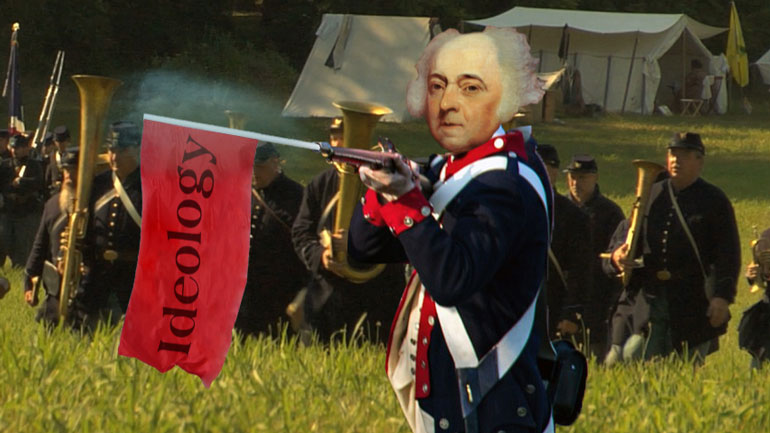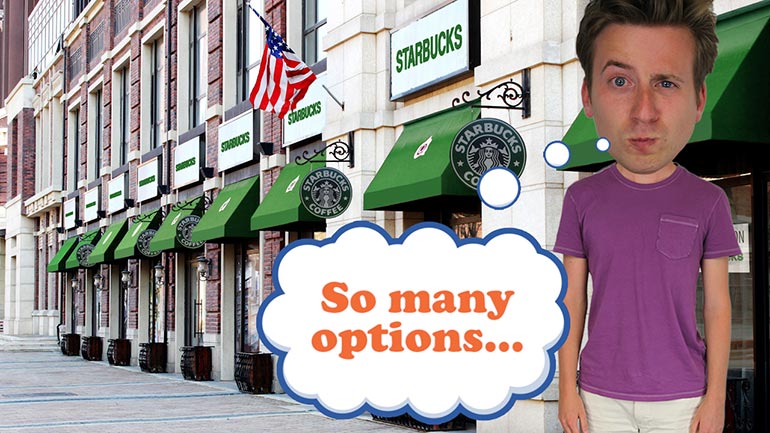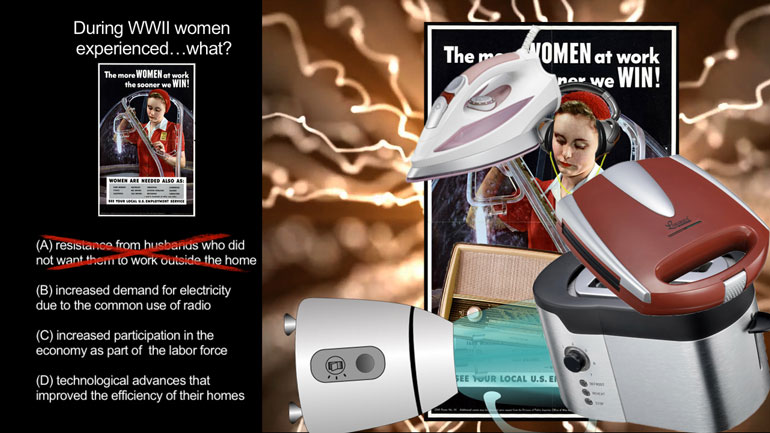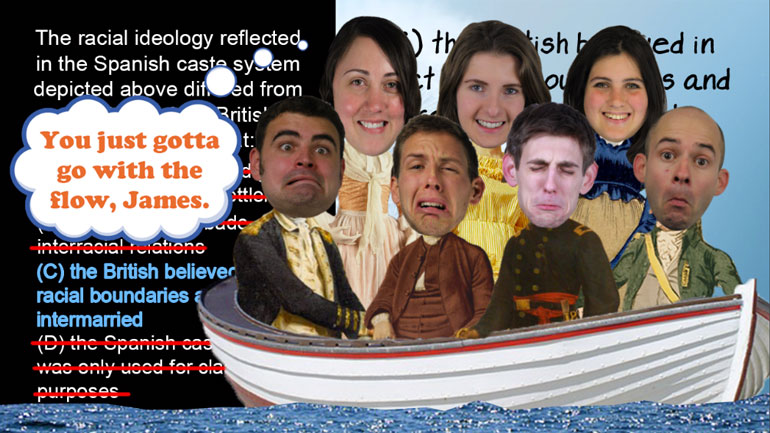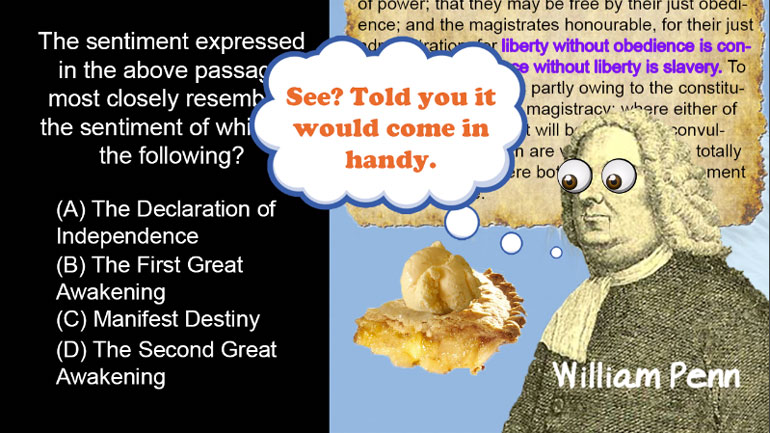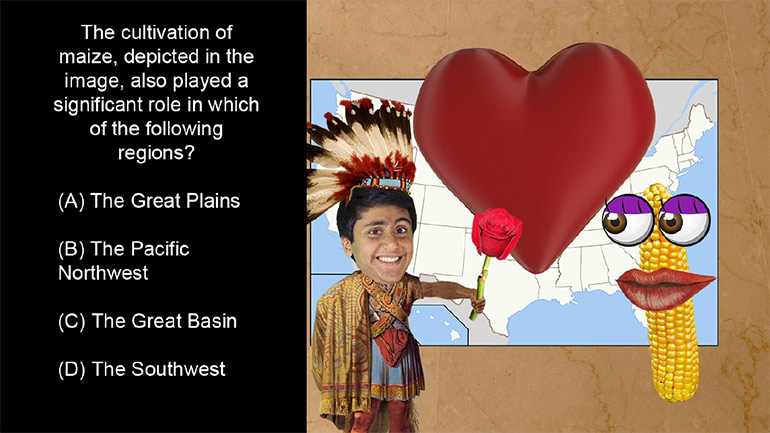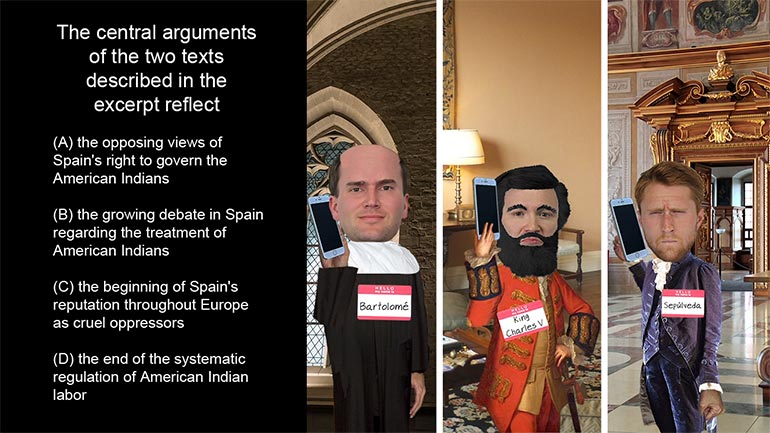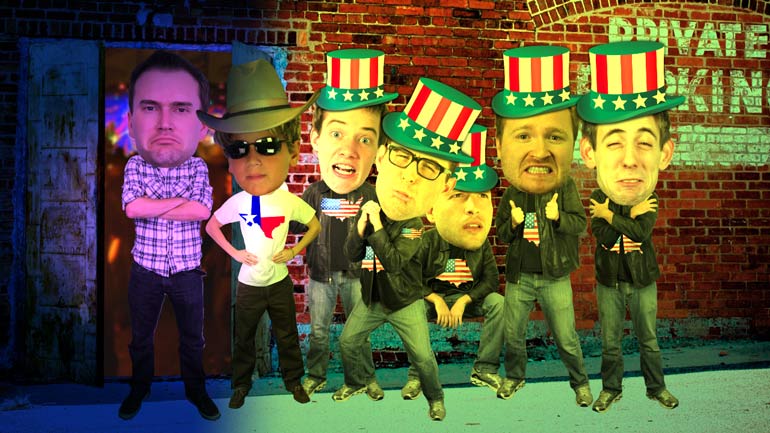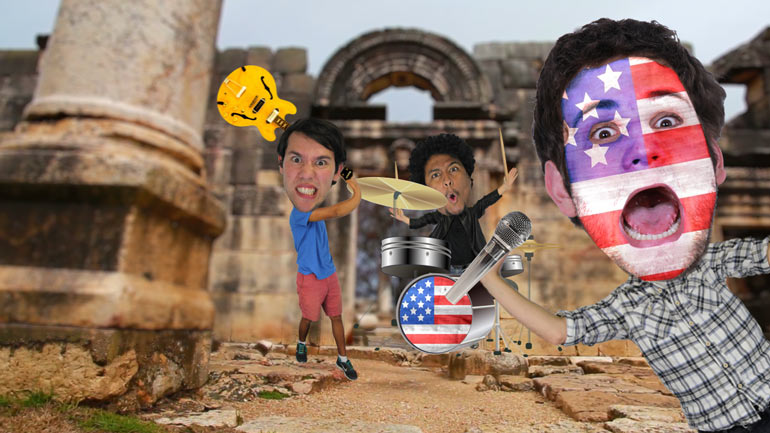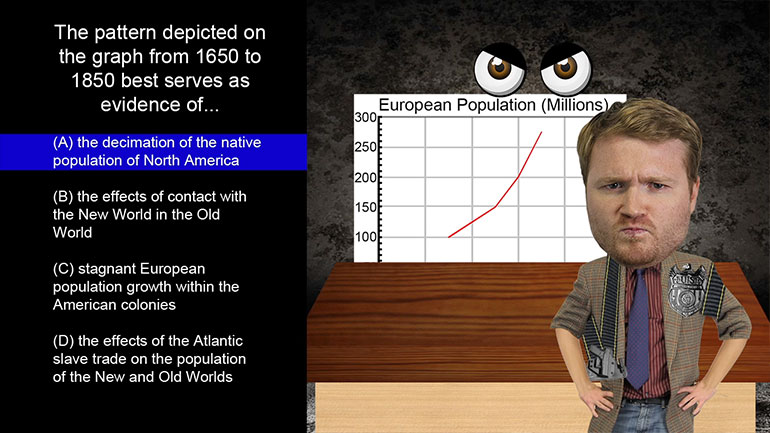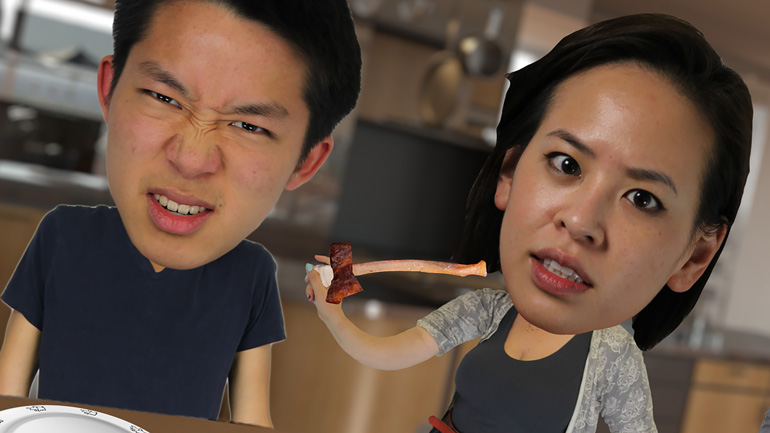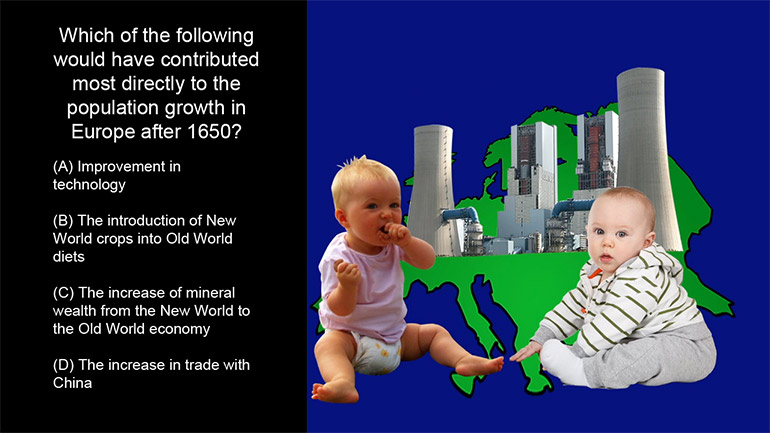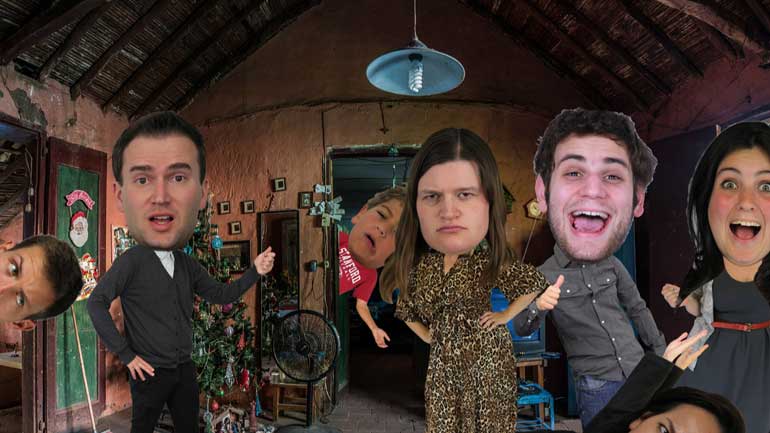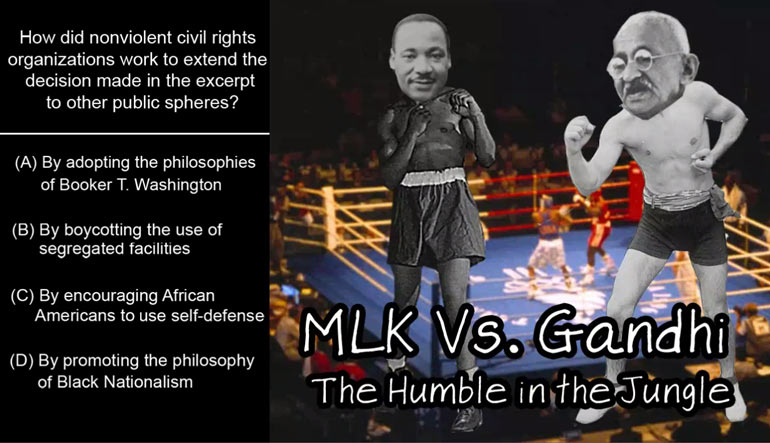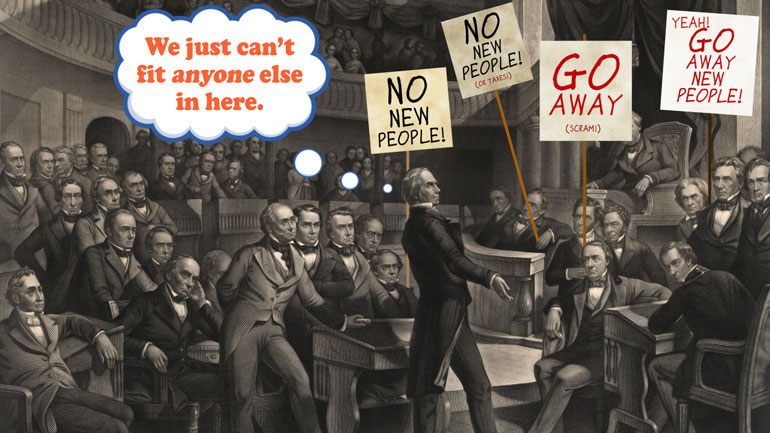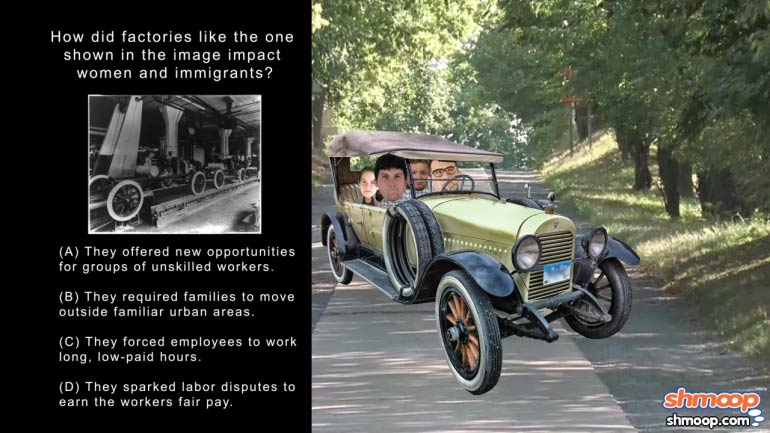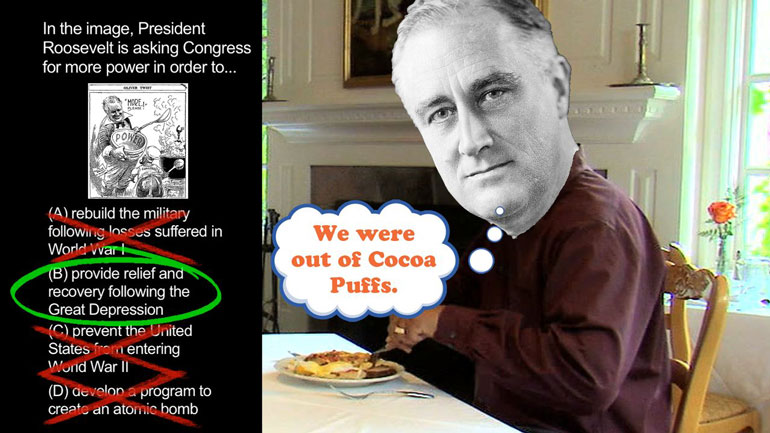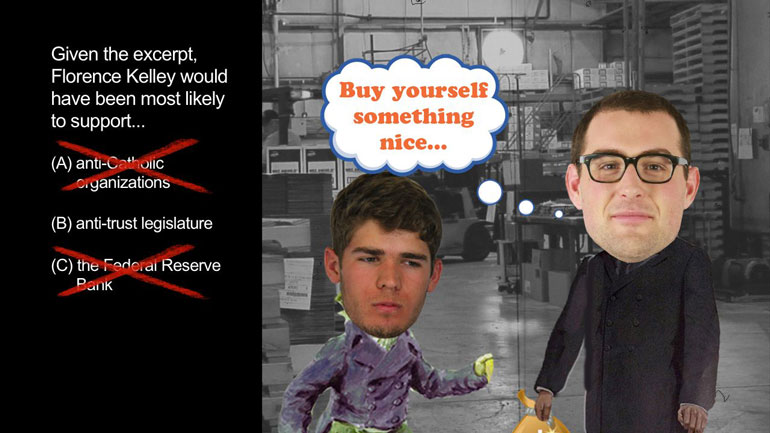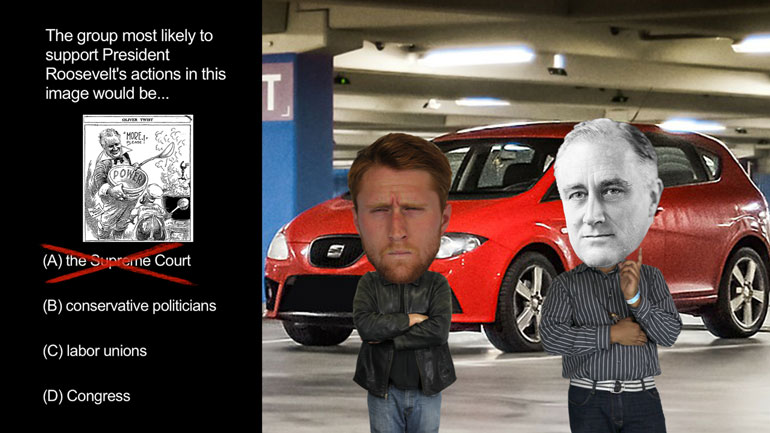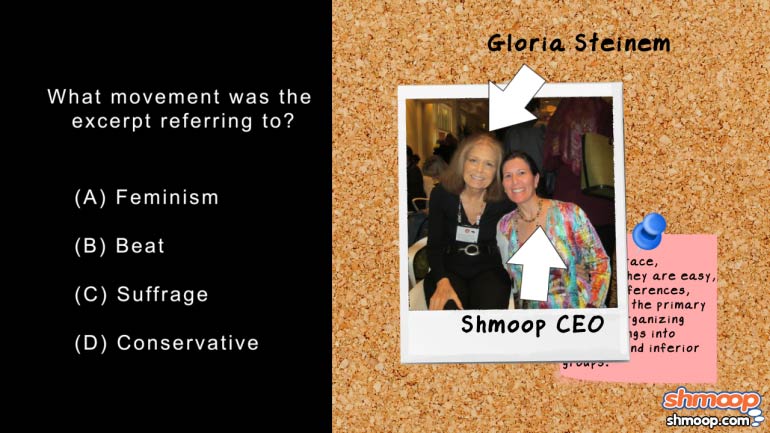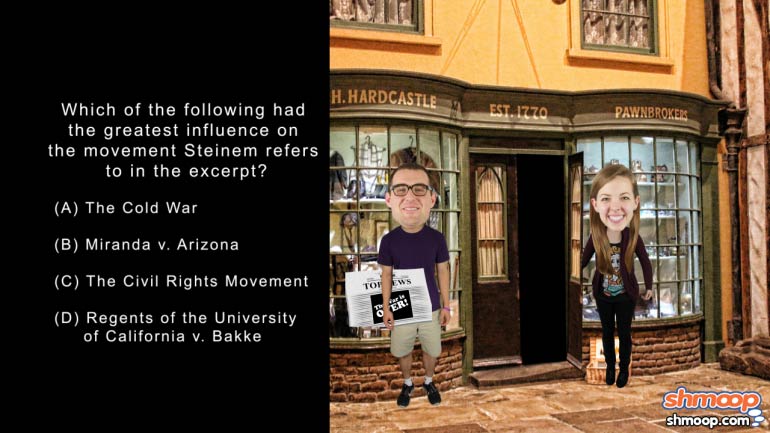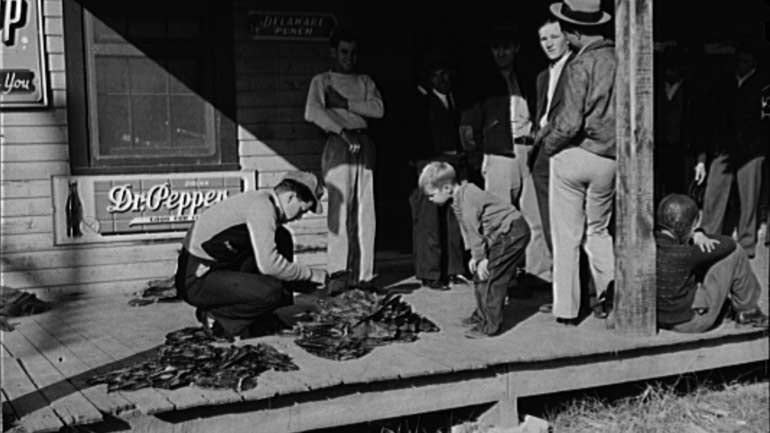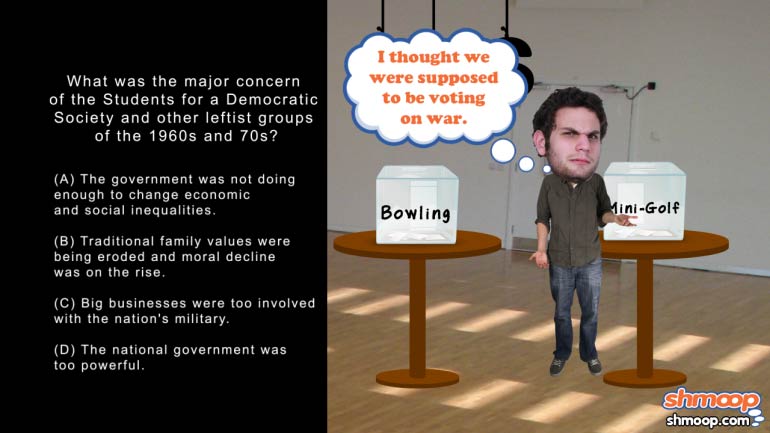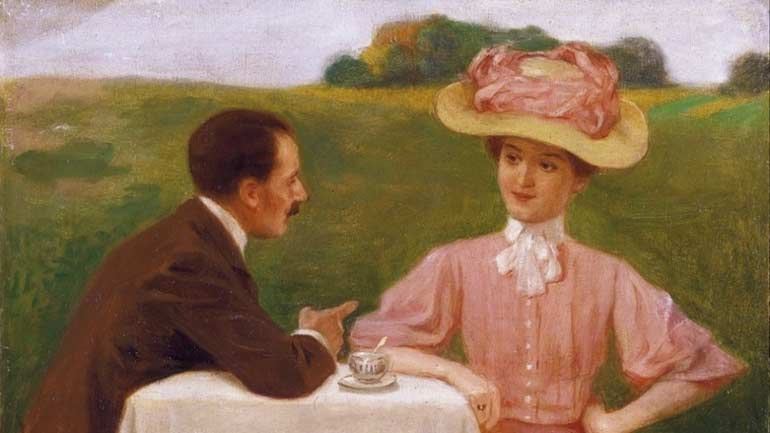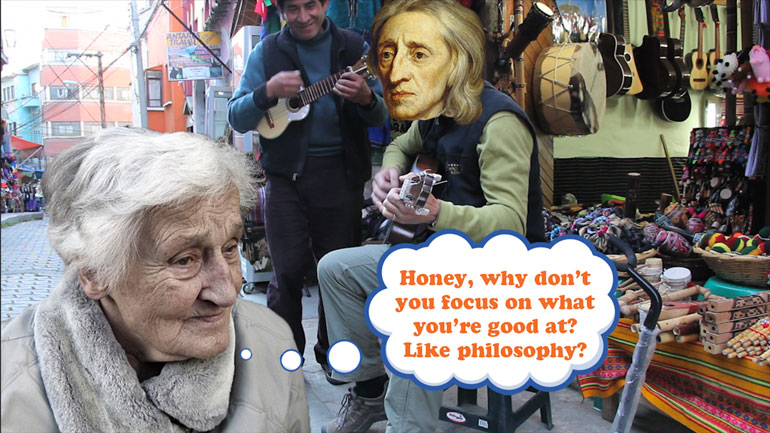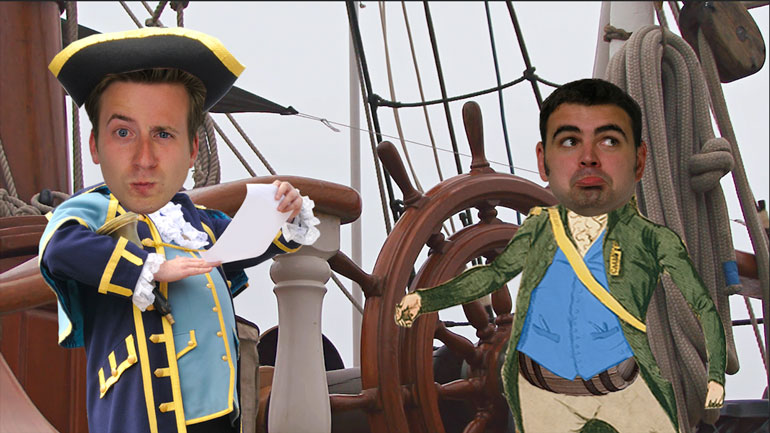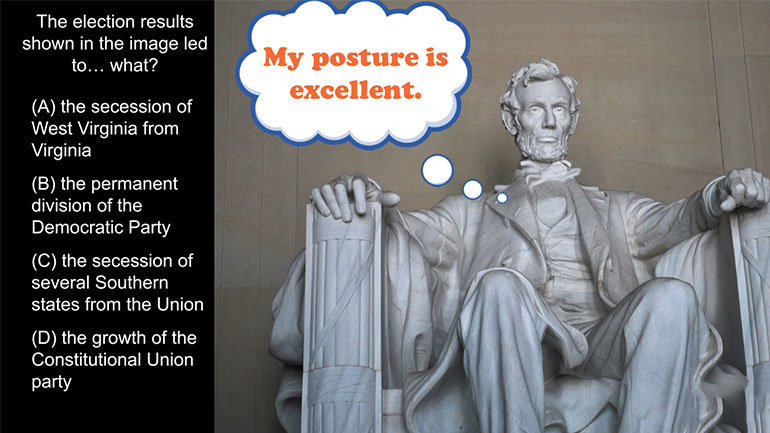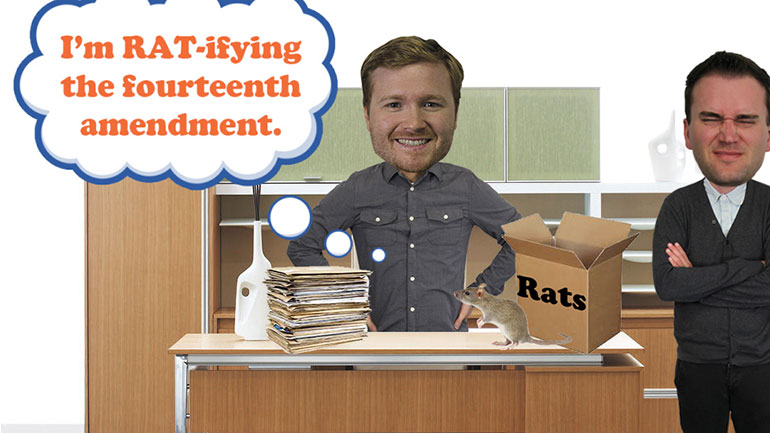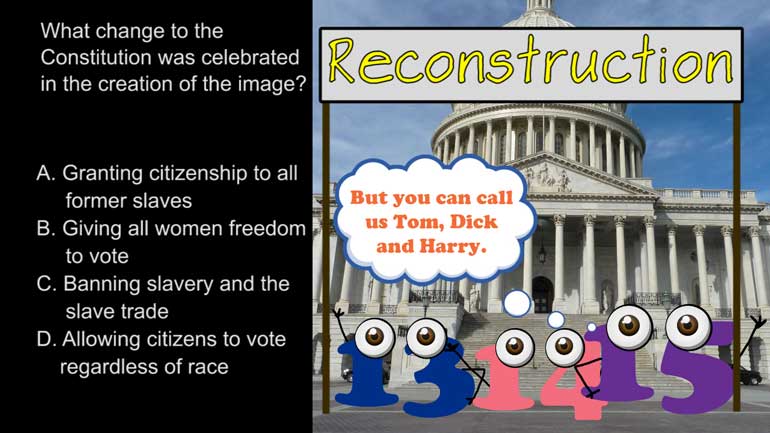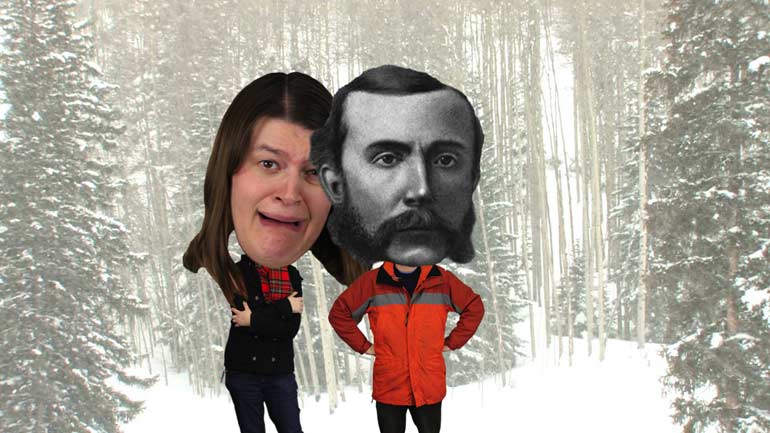ShmoopTube
Where Monty Python meets your 10th grade teacher.
Search Thousands of Shmoop Videos
AP U.S. History Videos 294 videos
AP U.S. History Exam 2.45. The journey shown on the map was an example of...what?
AP U.S. History Exam 2.26. This speech reinforced a shift in the focus of the war that Lincoln established by...what?
What did the Spanish messengers bring with them to North America? Hint: you probably wouldn't be thrilled to get this for your next birthday.
AP U.S. History Exam 2.35 167 Views
Share It!
Description:
AP U.S. History Exam 2.35. How did factories like the one shown in the image impact women and immigrants?
Transcript
- 00:00
[ musical flourish ]
- 00:04
And here's your Shmoop du jour, brought to you by the Model T,
- 00:07
the haughtiest letter in the alphabet.
- 00:09
All right. Well, how did factories like the one shown in the image
- 00:12
impact women and immigrants?
Full Transcript
- 00:14
And here are your potential answers.
- 00:16
[ mumbles ]
- 00:21
All right, well, here we go.
- 00:22
The introduction of the assembly line became a driving
- 00:25
[ chuckles ] force in the American economy.
- 00:28
But we need to figure out what happened to
- 00:29
women and immigrants who went along for the ride.
- 00:32
Did factories like the one in the image impact
- 00:34
women and immigrants because B - they required families
- 00:37
to move outside familiar urban areas?
- 00:40
Huh? Well, actually, many of these large factories were based
- 00:43
in major cities, so there wasn't a whole lot of relocation required.
- 00:48
Could these factories have affected women and immigrants
- 00:50
because C - they forced employees to work
- 00:52
long, low-paid hours?
- 00:55
Well, labor disputes over grueling hours existed long before
- 00:58
the adoption of the assembly line. So that's a strike against C.
- 01:02
Did these factories affect women and immigrants because D -
- 01:05
they sparked labor disputes to earn the workers fair pay?
- 01:09
Hmm. Well, workers had been grumbling about low wages
- 01:11
for decades, so the introduction of the assembly line
- 01:14
didn't really make any waves there.
- 01:16
Which means factories like the one in the image impacted
- 01:19
women and immigrants because A - they offered
- 01:21
new opportunities for groups of unskilled workers.
- 01:24
The assembly line transformed industrial practices
- 01:27
by making it possible for unskilled workers to become
- 01:30
specialized in a specific task.
- 01:32
So A is the correct answer.
- 01:34
The invention of the assembly line really opened doors
- 01:36
for many female and immigrant workers.
- 01:38
Uh, well, factory doors, at least.
Related Videos
Ever heard of a "living document"? They eat and breathe just like the rest of us! They even walk around on their own two legs. Okay, fine—maybe t...
If the Puritans had gotten their way, religion would play a much larger role in lawmaking these days. Want to know more? Watch the video for all th...
What happened between the creation of the Articles of Confederation and the ratification of the current U.S. Constitution? This video analyzes the...
The Modernists thought the world had a lot of problems, and they were intent on fixing them—or at least talking about fixing them. Unfortunately,...
This video explains Federalism and the quest for a fair balance between state and national power. It covers the progression and compromises of Fede...

